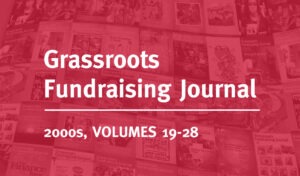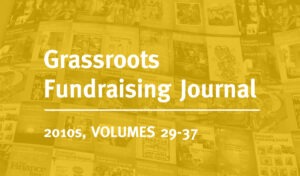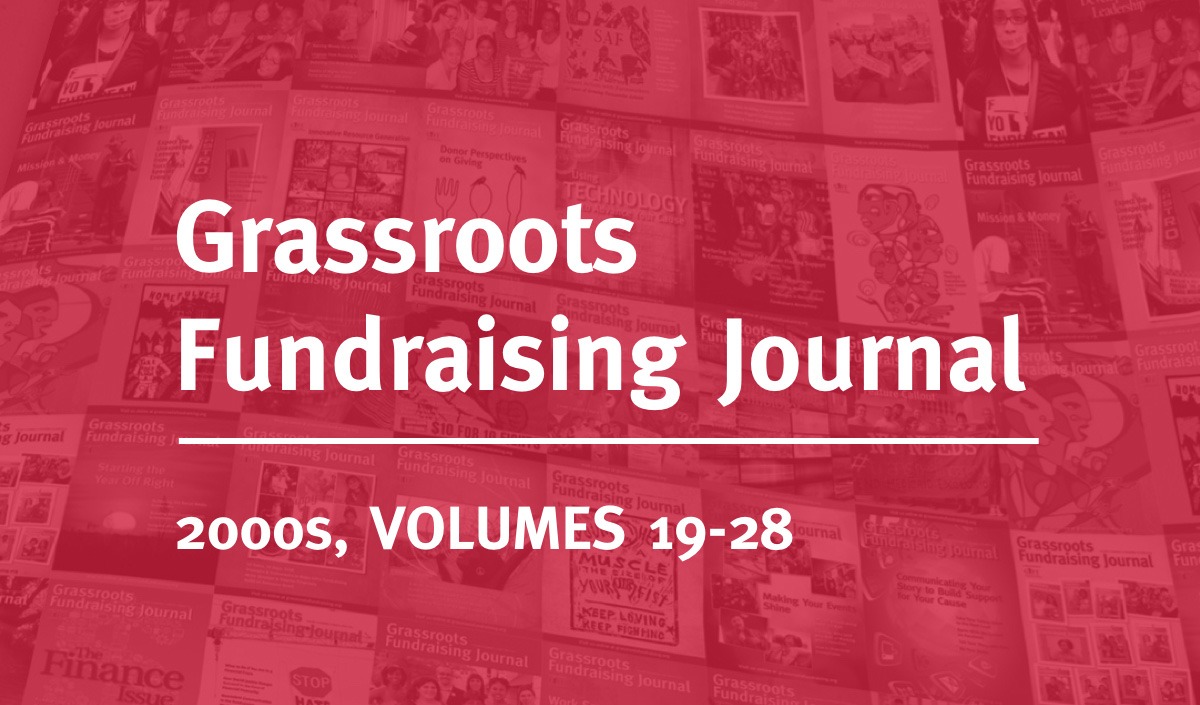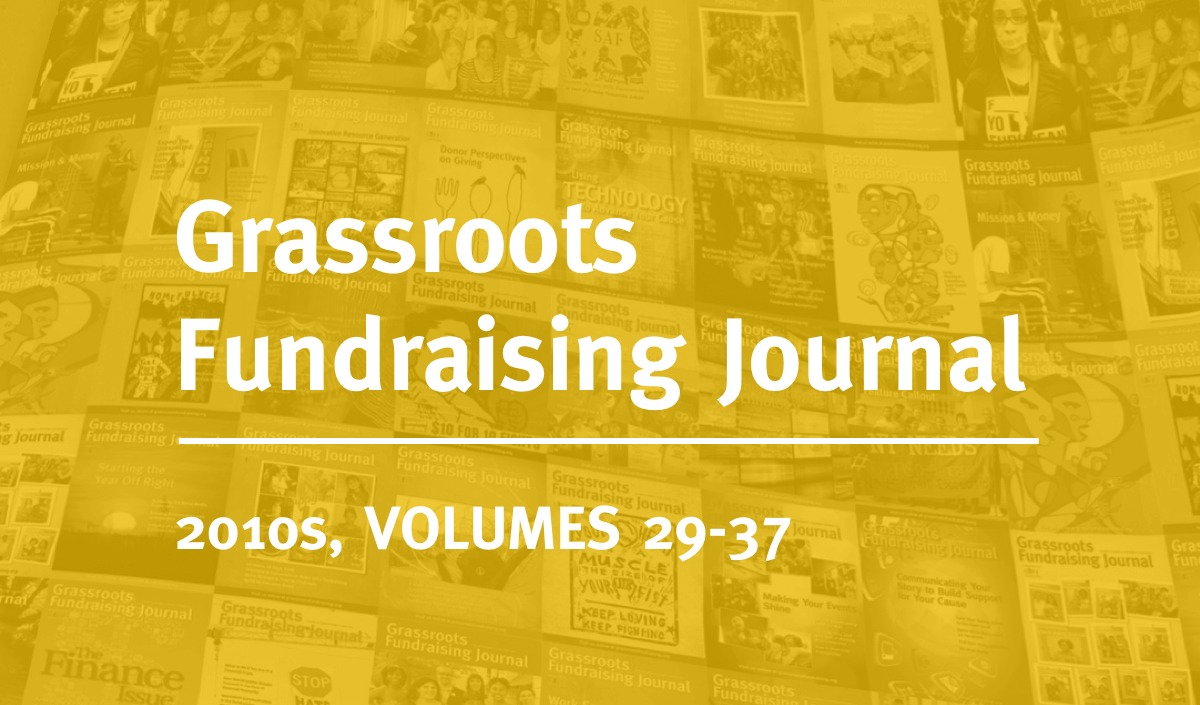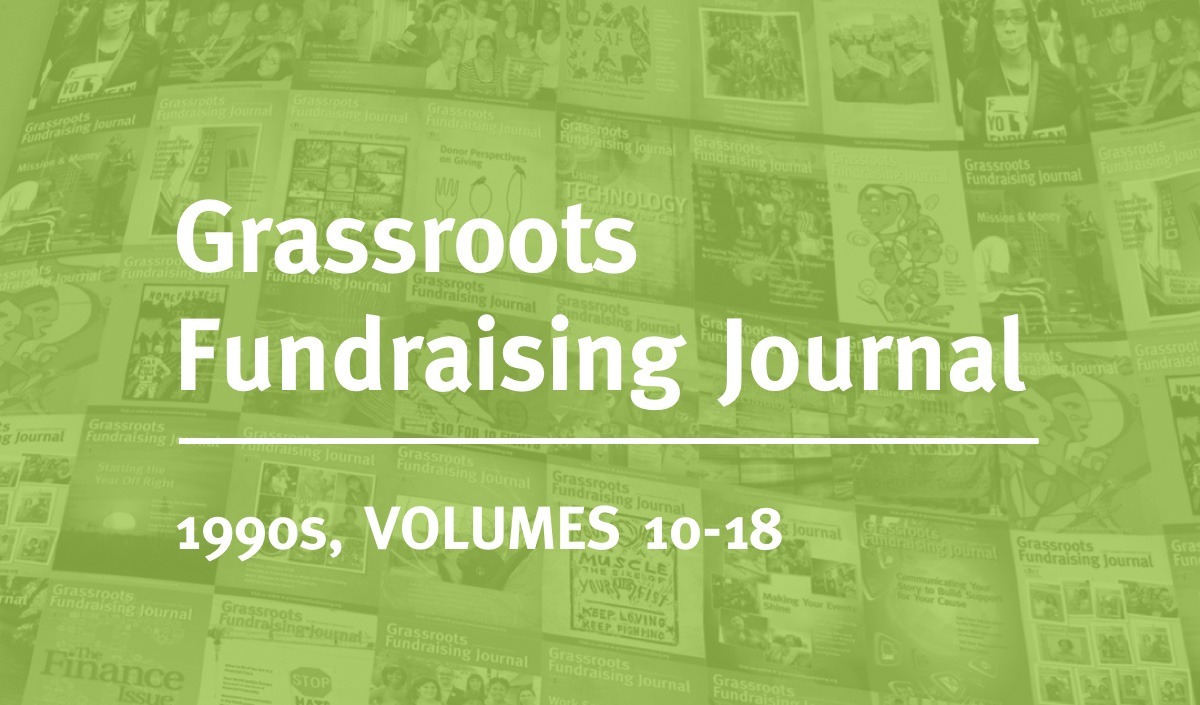
Editors’ note: This article, first published in print during December-1993, has been republished for Nonprofit Quarterly with minor updates.
A few weeks ago I was talking with the development director of a medium-sized organization with a budget of $500,000. He is reputed to be competent and efficient at his job. He is warm and friendly and I believe he probably is good at many parts of his work. However, he used language that I found offensive and degrading to the process of fundraising. Had he been the only person ever to use such language, I would not take the time to write an editorial about it. But I find that the language he used has crept into the vocabularies of a lot of fundraising professionals and even into the vocabulary of board members, activists, and grassroots staff people.
The offensive words and phrases are the following:
“We could hit him up for $1,000.”
“Sure, she’s got the money. Just stick the knife in a little further. Tell her some sob story. She’ll cough up big time.”
“I just kept pounding him with the facts until he surrendered. I got $200 out of him.”
Sign up for our free newsletters
Subscribe to NPQ's newsletters to have our top stories delivered directly to your inbox.
By signing up, you agree to our privacy policy and terms of use, and to receive messages from NPQ and our partners.
“We’re in the foreplay phase; I’m working her up slowly and I hope she’ll give big.”
I am sure you get the idea. Fundraising is borrowing phrases from boxing, football, war, and, sometimes, seduction. But donors are not enemies or objects. They are not to be tricked out of their money or coerced or “seduced” into giving.
Some of these phrases are in common usage, such as, “Hit her up for a gift.” Some are more obviously offensive, such as, “Twist the knife.” All reflect a hostile mentality that is demeaning for both the donors and the solicitors.
Asking for money for a worthy cause ought to be a dignified interaction between the parties involved. One party — the solicitor — presents the cause, answers questions, and asks for money. The other party — the prospect — gives or doesn’t give. But no one is physically hurt or defeated or rejected by the outcome. No one else is “victorious” or “scoring.” One person says what he or she wants and the other says what he or she is willing to do. It is simple and straightforward and, in the scheme of things, no big deal.
When I have challenged people on their language, many have said, “It’s just a saying, it doesn’t mean anything.” I disagree. Language reflects how a person thinks and how they relate to other people. Hostile language in common usage, even if it “doesn’t mean anything” at first, can create a hostile attitude where none previously existed.
So let’s resolve to clean up our language. In doing so, we will return to the values that motivate us to do this work in the first place — compassion, respect for the rights and well-being of all living things, and the firm belief that the world can be a better place because of our work.



